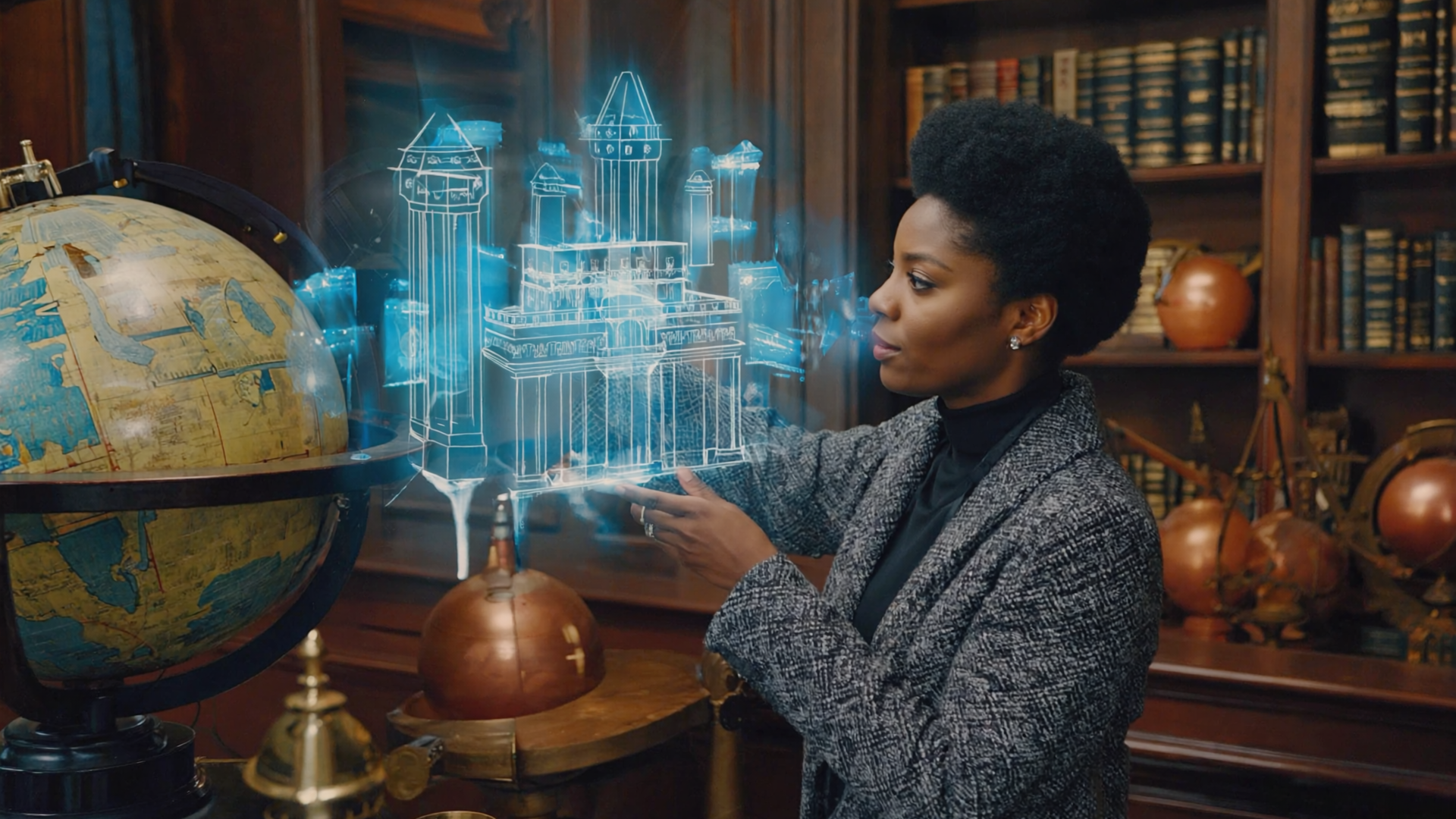In the hallowed, hushed halls of the University of Oxford, where centuries of scholarship have meticulously peeled back the layers of human history, a new and startlingly futuristic endeavor is underway. Forget the gentle brush of the archaeologist or the patient decipherment of faded script by candlelight alone. The “Chronos Quantum” project, an audacious and exhilarating collaboration between Oxford’s world-renowned Classics faculty, its formidable historians, and the pioneering minds at its quantum computing laboratories, is deploying the almost esoteric power of next-generation computation to unlock the most elusive secrets of antiquity. This is not merely historical research; it is an act of intellectual necromancy, a quantum leap that promises to resurrect lost voices, reconstruct forgotten worlds, and allow us to hear the echoes of ancient wisdom with a clarity and precision previously unimaginable.
For millennia, our understanding of bygone eras has been painstakingly pieced together from fragments—a shard of pottery here, a weathered inscription there, a crumbling manuscript rescued from the ravages of time. So much has been irrevocably lost, leaving tantalizing gaps in our knowledge, like missing verses in a grand, epic poem. The Chronos Quantum project, however, dares to ask: what if we could bridge some of those gaps, not through speculation, but through the extraordinary analytical power of quantum algorithms? What if the whispers from antiquity could be amplified, their faint signals rescued from the noise of centuries?
Imagine quantum computers, capable of processing information on a scale that dwarfs conventional machines, being set to the task of deciphering severely damaged or incomplete ancient texts. These are texts that have long defied traditional methods, their meanings obscured by lacunae, erosion, or the complexities of long-dead languages. The Oxford team is developing quantum algorithms specifically designed to identify statistical patterns, reconstruct probable linguistic structures, and even model the evolution of dialects with an unprecedented level of nuance. It’s like having a digital oracle capable of sifting through infinite possibilities to reveal the most likely original meaning, offering glimpses into philosophies, histories, and daily lives that were thought to be forever silenced.
But the ambition of Chronos Quantum extends beyond the written word. Consider the challenge of reconstructing the soundscapes of ancient civilizations. How did a Ciceronian oration truly resonate in the Roman Forum? What was the authentic cadence of a Sapphic ode, or the precise tonal quality of music played on long-vanished instruments? By combining archaeological data on ancient performance spaces, fragmentary musical notations, and sophisticated acoustic modeling powered by quantum computation, Oxford researchers are aiming to create immersive, high-fidelity auditory reconstructions. It’s an endeavor that promises to transform our engagement with the past from a purely textual or visual experience into a deeply sensory one, allowing us to hear history as it might once have been.
Furthermore, the project is leveraging quantum modeling to explore complex historical scenarios and social dynamics. How did information flow in ancient societies? What were the true economic impacts of long-lost trade routes? How did subtle environmental shifts influence the rise and fall of empires? By inputting vast datasets of archaeological, textual, and paleoclimatological evidence into quantum simulations, historians at Oxford can explore counterfactual histories, test complex hypotheses, and gain a far more dynamic understanding of the intricate forces that shaped past civilizations. This is history moving beyond static narratives to become a vibrant, explorable landscape of probabilities and interconnections.
The intellectual frisson generated by Chronos Quantum is palpable. It represents a stunning convergence of the deeply traditional and the radically futuristic—a marriage of classical scholarship, with its meticulous attention to detail and profound respect for historical context, and the almost alchemical power of quantum mechanics. This is quintessentially Oxford: an institution unafraid to bring the most advanced tools of the present to bear on the most enduring questions of the past, all while maintaining an unwavering commitment to scholarly rigor and intellectual integrity.
The endeavor is not without its profound philosophical considerations. As we reconstruct and “listen” to these digitally resurrected voices, what is the nature of the authenticity we are encountering? How do we navigate the inherent uncertainties and potential biases within the algorithms themselves? These are questions that the Oxford team, with its deep grounding in ethics and critical theory, is actively grappling with, ensuring that this technological prowess is wielded with wisdom, transparency, and a profound sense of responsibility to the historical record.
The “Oracle’s Echo,” as one might poetically term the output of this project, promises to enrich not just academic scholarship but also our collective cultural imagination. Imagine museum exhibits where visitors can hear the reconstructed voices of ancient poets, or educational programs that allow students to virtually walk through and interact with vividly simulated historical environments. It’s about making the past more accessible, more tangible, and more deeply resonant for a new generation.
In an age often fixated on the fleeting present and the uncertain future, Oxford’s Chronos Quantum project serves as a powerful reminder of the enduring value of understanding our origins. It demonstrates that history is not a static, closed book, but a dynamic field of inquiry, constantly being re-examined and reinterpreted through new lenses and with new tools. By harnessing the extraordinary potential of quantum computing, Oxford is not just preserving the past; it is actively, brilliantly, and with a touch of scientific magic, bringing its lost whispers back to life, ensuring that the wisdom of antiquity continues to inform and inspire the world of tomorrow.


